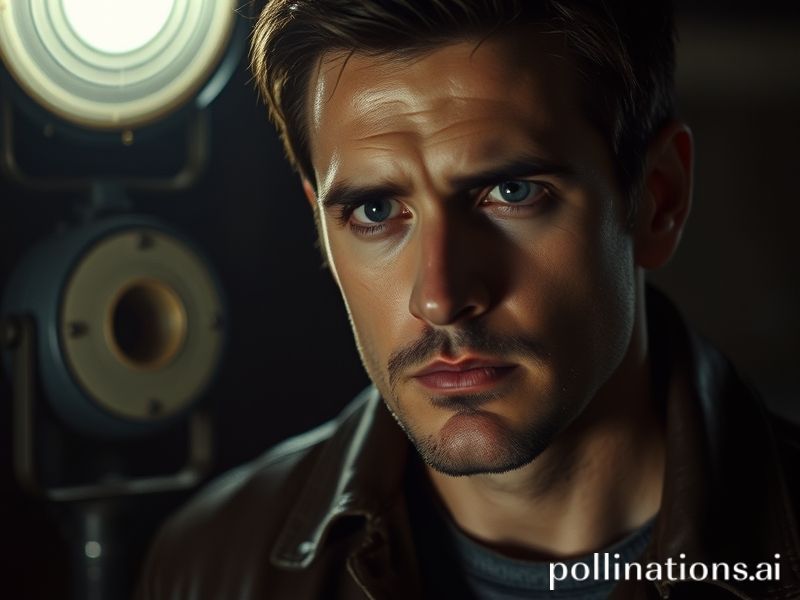Colin Farrell: The Last Export Both Beijing and Boise Still Agree On
Dublin to Dubai: How Colin Farrell Accidentally Became the Last Universal Leading Man
By the time the private jet carrying Colin Farrell touched down in Riyadh last month—courtesy of a film-festival junket so opulent it could make a Bond villain blush—the planet had already decided what it wanted from him. Not another eyebrow-cocked villain, not another brooding antihero, just the weary, wounded decency he’s been selling since “In Bruges.” In an era when every nation is busy stapling tariffs to each other’s foreheads and teenagers in Jakarta communicate exclusively in K-pop reaction GIFs, Farrell has improbably become the one piece of shared emotional real estate left on Earth. Which is hilarious, because twenty years ago the poor man was best known for a sex tape and a hairstyle that looked like it had been vandalized by raccoons.
The math is brutal and global. Hollywood’s algorithmic overlords have sliced audiences into micro-demographics so granular that a streaming executive in São Paulo can tell you the optimal length of a nose-hair close-up for Peruvian women aged 27-32. Meanwhile, Farrell keeps limping through roles that feel handcrafted for the pre-digital human: the guilt-addled hitman, the grieving father, the guy who looks like he’s read actual books and still feels bad about the ones he skimmed. From Lagos bootleg-DVD stalls to Seoul subway ads, his face sells the same pitch: maybe the world isn’t entirely run by sociopaths in Patagonia vests. It’s a lie everyone agrees to believe, like democracy or airline food.
Critics in Parisian cafés (smoking themselves into an early grave, bien sûr) argue he’s the logical heir to 1970s Pacino—if Pacino had grown up Catholic in a country that still treats whiskey as a food group. Berlin programmers, ever eager to monetize angst, have green-lit three Farrell-led series about morally compromised lighthouse keepers. Even Tokyo’s famously irony-proof morning shows have adopted him; last week they superimposed cartoon cat ears on his “Banshees of Inisherin” scowl, which is either cultural vandalism or the purest form of art, depending on your antidepressant dosage.
The real trick is geopolitical. While Washington and Beijing trade sanctions like Pokémon cards, Farrell has quietly become the only export both sides will accept without a 25-percent surcharge. Chinese censors trimmed seven seconds of “The Batman” for excessive brooding, yet left his Penguin intact—apparently corruption is fine if it’s charming and Irish. In Moscow bootleg markets his films sell out faster than iodine tablets, proving that even apocalypse shoppers want a side of twinkling self-loathing with their doom.
Of course, universal appeal has its price. In Mexico City I watched a 3D billboard render his crow’s-feet at eight meters tall while traffic cops extorted Uber drivers below; the juxtaposition could’ve been directed by Alejandro González Iñárritu on a cynical day. And at last week’s COP28 summit in Dubai (held, naturally, in an air-conditioned tent the size of Liechtenstein), delegates quoted “The Lobster” to argue about carbon credits—proof that climate negotiations have finally reached peak absurdist theater.
What makes Farrell matter on the world stage isn’t range; it’s restraint. In an age when presidents live-tweet bowel movements, he still declines to Instagram his breakfast. That vacuum of oversharing allows every culture to project its own bruised optimism onto him. To the French he’s existential; to Indians he’s the reformed bad boy every mother prays her daughter will marry; to Americans he’s the last guy who still looks decent in a rumpled suit, which passes for revolutionary in 2024.
So when the next multiplex explodes with capes, multiverses, and whatever NFT-sponsored nonsense Netflix is shipping, remember that somewhere on a legal streaming platform (or a Cambodian pirate site with charming pop-ups for mail-order brides), Colin Farrell is quietly failing at being a better man. The planet will keep fracturing into algorithmic shards, but for roughly 118 minutes at a time, a Dublin accent can still make the globe feel like one slightly hung-over village. That’s either the saddest commentary on modern life or the most hopeful—your call, depending on the exchange rate.







